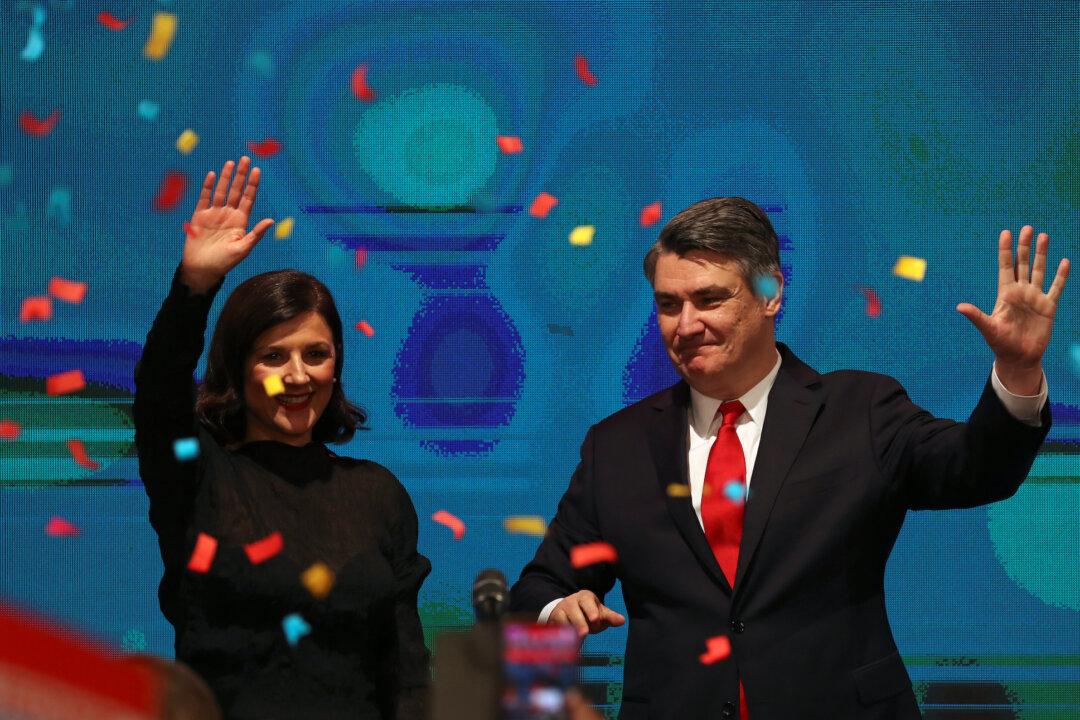ZAGREB—Former Prime Minister Zoran Milanovic, candidate of the top opposition party the Social Democrats, will be Croatia’s next president, the results of the presidential election showed on Sunday.
In the second and final round of the election, Milanovic won 52.7 percent of votes. At the same time, the incumbent Kolinda Grabar-Kitarovic, candidate of the ruling center-right Croatian Democratic Union (HDZ), garnered 47.3 percent of the votes.





